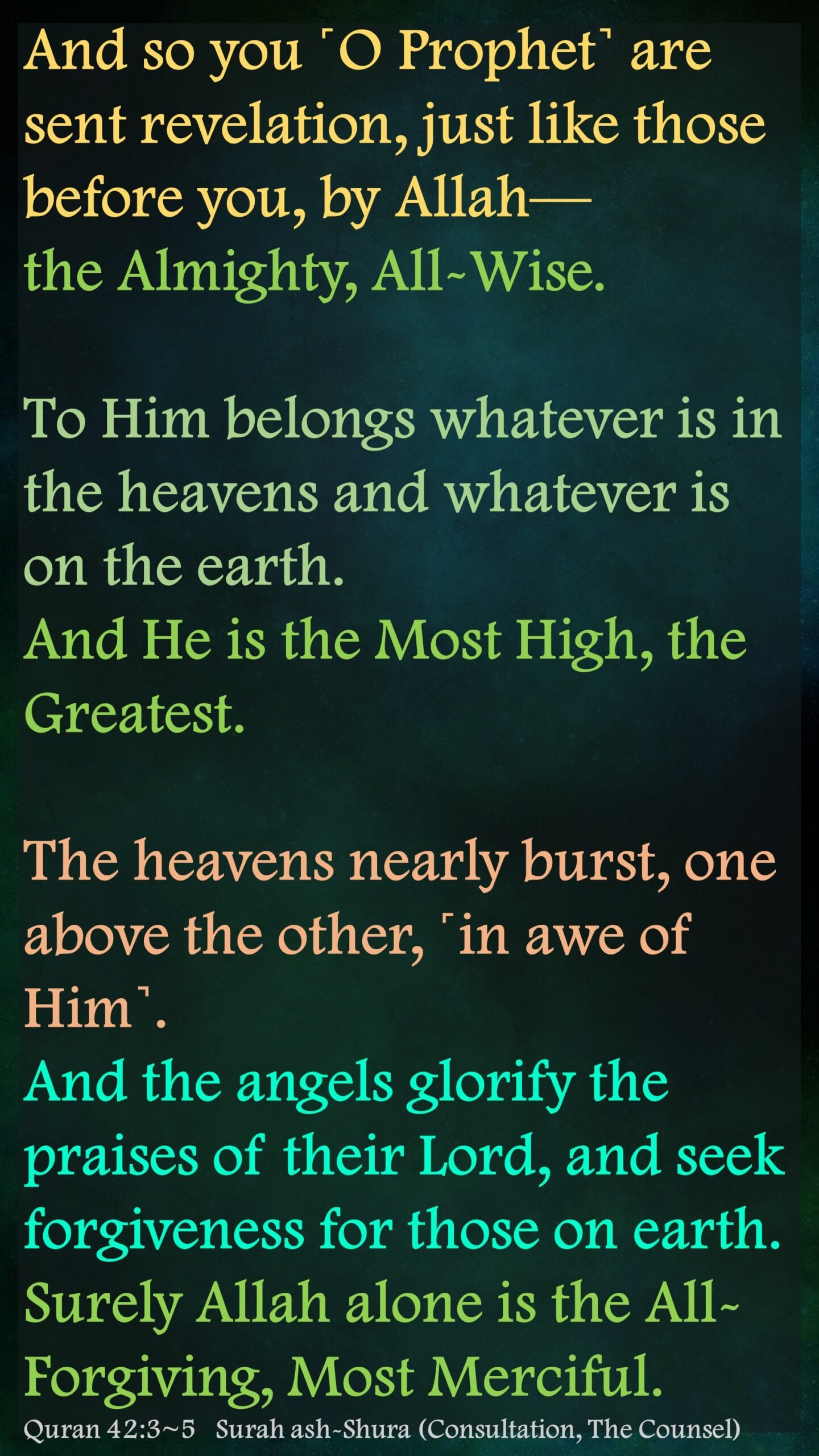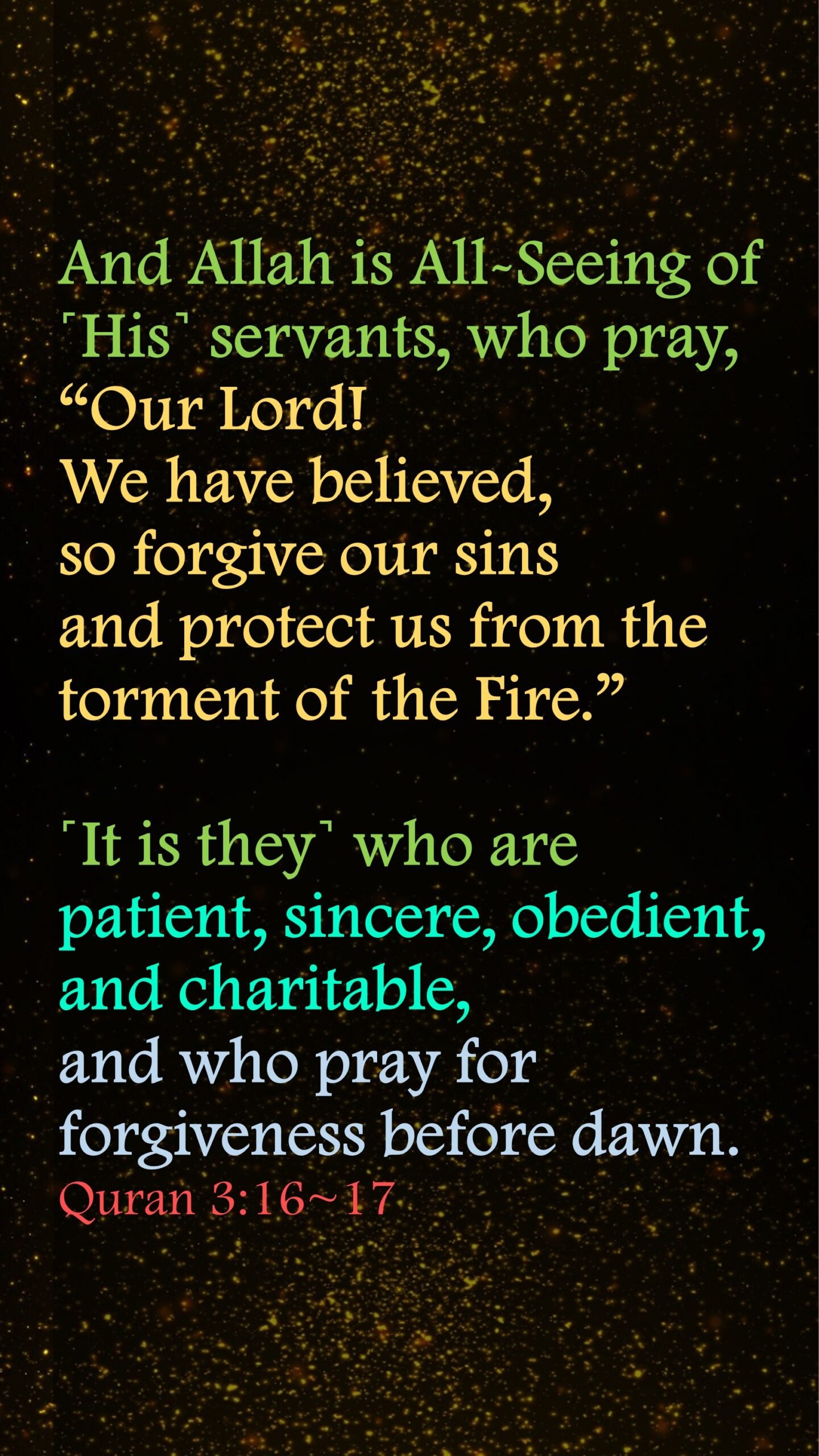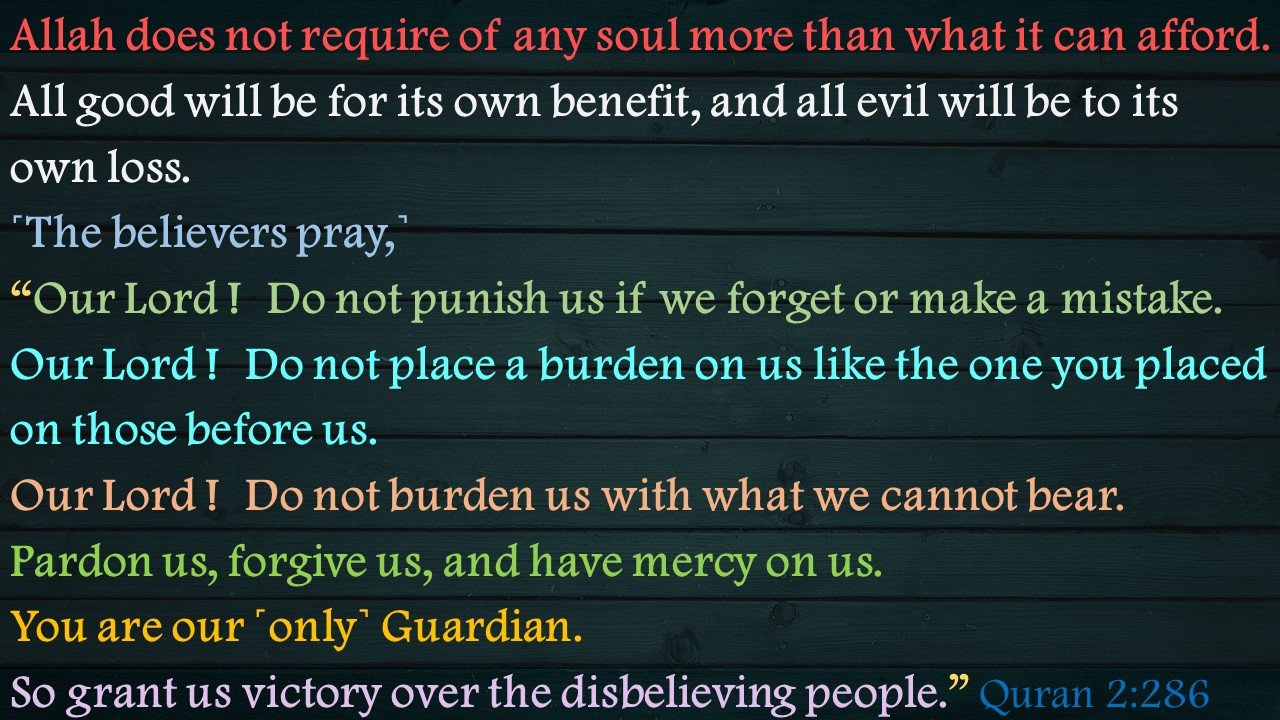Skip to Content
Tag Archives: before
- Home -
- Posts tagged "before"
14
Feb, 2024
Hadees, Islam, Quran
Allah, ayat, before, bestow, Blessed, companions, company, daily, deth, forgive, hereafter, highest, honorable, inspirations, islam, islamic, martyrs, meet, Mercy, Nisa, people, prophets, quran, righteous, supplication, Surah, truth, women
13
Feb, 2024
Hadees, Islam
3871, affairs, Al-Khasf, Allah, back, before, behind, bottom, calm, conceal, daily, disgrace, evening, faults, fears, forgive, forgiveness, hereafter, Ibn-e-Majah, inspirations, islam, islamic, morning, Muhammad, protect, refuge, religion, religious, side, supplication, top, unaware, well-being, World, worldly
25
Dec, 2022
Islam, Quran
All-Wise, Allah, Almighty, awe, ayat, before, burst, Chapter 42, daily, earth, forgiveness, Glorify, Greatest, heavens, inspirations, islam, islamic, Most High, Muhammad, PBUH, Prophet, quran, revelation, SAWW, seek, Surah, Verse 3, Verse 4, verse 5
22
Nov, 2022
Islam, Quran
ask, ayat, before, Chapter 13, daily, forgiveness, hasten, inspirations, islam, islamic, Lord, many, PBUH, Prophet, Punishment, quran, SAWW, Severe, Surah, torment, Verse 6, wrongdoing
30
Oct, 2022
Islam, Quran
All-Seeing, Allah, ayat, before, believe, chapter 3, charitable, daily, dawn, fire, forgive, forgiveness, inspirations, islam, islamic, Lord, obedient, patient, pray, prayer, protect, quran, servants, sins, Surah, Tahajjud, torment, verse 16, verse 17
16
Oct, 2022
Islam, Quran
Allah, Ar Rum, ayat, before, Chapter 30, clear, cultivate, daily, develop, inspirations, islam, islamic, land, Meccan, messengers, might, nations, proof, quran, Rome, see, suoerior, Surah, themselves, travel, verse 9, wrong
10
Jul, 2022
Islam, Quran
all, All-Seeing, Allah, ayat, before, believe, better, chapter 3, charitable, daily, dawn, fire, forever, forgive, forgiveness, Gardens, Heaven, hell, inspirations, islam, islamic, Lord, mindful, obedient, patient, PBUH, pleasure, pray, prayer, Prophet, protect, quran, rivers, SAWW, servants, sincere, spouses, Surah, Tahajjud, verses 15 to 17
28
May, 2022
Islam, Quran
Allah, ayat, bear, before, believers, benefit, burden, Chapter 2, disbelievers, evil, forget, forgive, good, grant, Guardian, inspirations, islam, islamic, loss, Mercy, mistake, not, only, pardon, pray, punish, quran, Soul, Surah, us, Verse 286, victory








